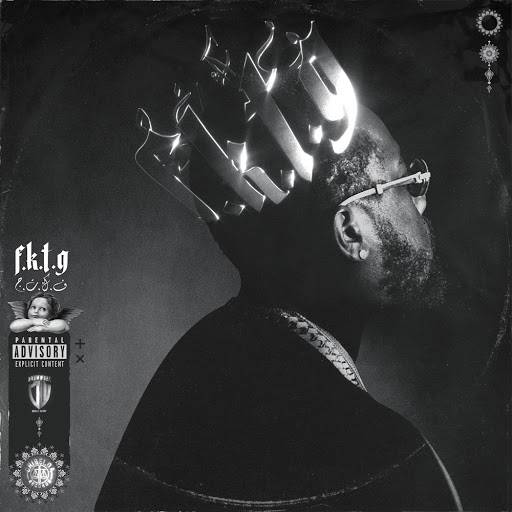Review: Conway The Machine's 'From King To A GOD' Marks A Glow-Up For The Griselda Rapper

As the late DJ Shay notes on one of his sobering interludes from Conway The Machine’s latest release From King To A GOD, there is always a quotable to be found Conway verse. His lyricism has been established over a laundry list of projects, earning the Griselda rhymer a legion of devout fans. From that perspective, it’s almost mind-boggling that this is his first actual studio LP (and everything up to this point can now be called a warm-up).
For those just getting acquainted following the imprint’s WWCD breakthrough, this LP is an exceptionally well-rounded introduction to who Conway is — and what he’s truly capable of doing.
Furthermore, for long time fans, and even detractors that pigeon-hole him, the 14-song project is his most fully fleshed out and universally approachable to date. While broadening his sound, it still plays up his core strength: serving upper echelon joints that are peak “Griselda-esque” (a term he coins on the crew cut “Spurs 3“). On that track, in particular, he dissects the depth of Griselda’s influence on an entire wave of new artists.
“Griselda, bitch, we the inspiration, you can see me and Gunn influencing’ all the music these niggas making,” he raps.
Conway is known to push his features to bring A-game performances on all fronts, including production. One example here is the grimy Beat Butcha and Daringer produced collaboration with Method Man, “Lemon.” He pulls an incredible 16 bars out of the Wu-Tang Clan founding member.
Another case and point: Alchemist gets in his bag with the split song “Dough & Damani.” The first half is so reminiscent of the Murda Muzik-era Mobb Deep sound you almost expect to hear the late Queensbridge MC Prodigy pop up at any moment. The same can be said for the standout “Juvenile Hell” featuring Flee Lord, Lloyd Banks and Havoc (who also produced the song). Here, Havoc’s signature gritty drums create the perfect canvas for the three MCs to connect like Voltron, with Banks sounding especially fresh (much to Rick Ross’ delight, no doubt).
One specific bar on “Dough & Damani” has Con reacting to top lyricist snubs from major publications. “Every single verse is a verse of the year contender, guess it’s ’cause I only rap ’bout the work I put in the blender,” he spits.
It’s not unusual for Griselda detractors to write the crew off as sonically one-dimensional. It is a semi-fair criticism, as they have tended to stay in a comfortable pocket at times. That’s partially why any variation from their usual sound causes a stir.
That’s what makes his collaboration with DeJ Loaf on the Hit Boy-produced “Fear Of God” so interesting — pitting him with an unlikely collaborator on a soundscape we’re not used to hearing him rock. Better yet, the Armani Caesar featured “Anza” produced by Murda Beatz, that sees him bodying both Drake and Tekashi 6ix9ine flows on the first verse without sounding too out of place — adapting to an audience who generally doesn’t acknowledge him.
Thankfully he doesn’t dwell too long on this particular sound. While it works, the glitzy, mainstream vibe of Murda’s production walks a line that could alienate some listeners in heavier doses. The juxtaposition between “Anza” and the menacing tone of the song before it, “Front Lines” (where he comments on 6ix9ine snitching and police brutality), is slightly jarring.
Elsewhere, the album delivers a lot of heavy-hearted tributes — relinquishing his tough-as-nails aura to share the emotional stress of dealing with grief. There is this sense that his victories are a nod to the ever-present memory of those lost and incarcerated along the way.
One of the album’s most significant moments is the second verse of the Erick Sermon and Rockwilder-produced “Forever Dropping Tears” when he speaks on the loss of DJ Shay and the enormous influence the late producer/affiliate had on his life. Most powerfully, he notes that he wrote the verse while getting dressed for Shay’s funeral.
In hyping up his eventual Shady Records debut (about two years in the making), Gunn has long lauded the amount of sonic diversity Conway was displaying. We’re finally getting to hear it play out in real-time. From King To A GOD is a brilliant amalgamation of all the promise he has shown over the years. He doesn’t so much drop his usual schtick as much as he paints a broader and more removed retrospective from his past life — and overt embrace of both his successes and current career trajectory.
At this point, leaving Conway off of any list is a sign of willful ignorance, and he’s just getting started. If his discography to this point was the regular season, From King To A GOD could be a sign that play-off Maquina is going to be a problem.




